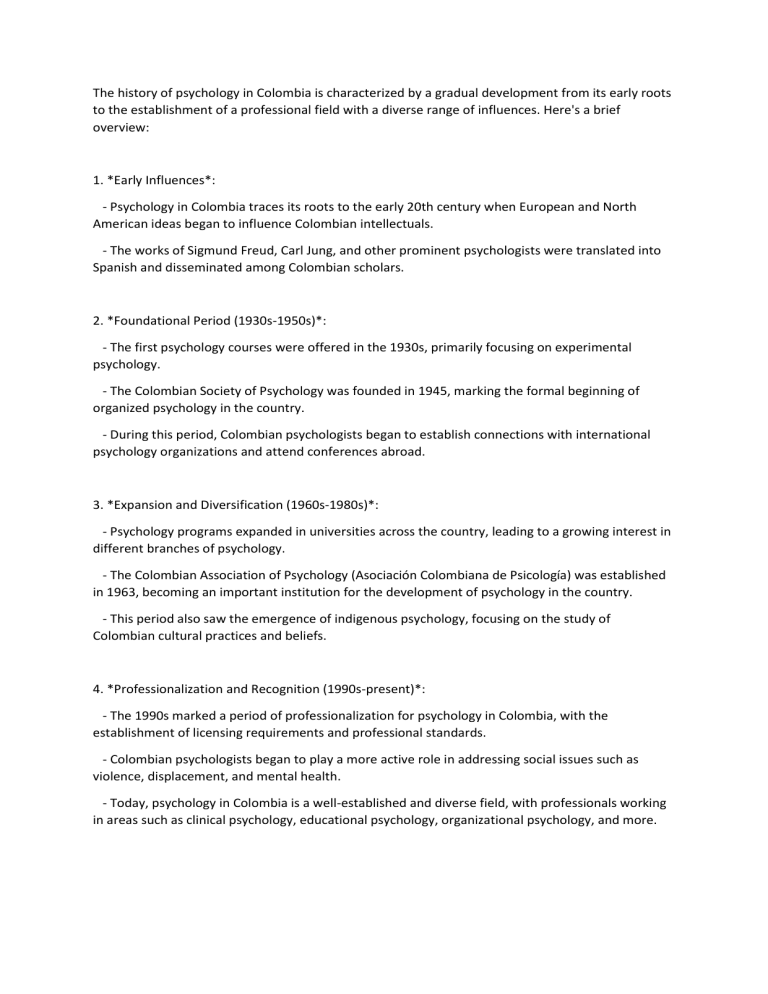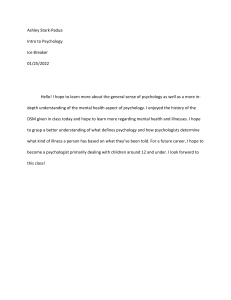
The history of psychology in Colombia is characterized by a gradual development from its early roots to the establishment of a professional field with a diverse range of influences. Here's a brief overview: 1. *Early Influences*: - Psychology in Colombia traces its roots to the early 20th century when European and North American ideas began to influence Colombian intellectuals. - The works of Sigmund Freud, Carl Jung, and other prominent psychologists were translated into Spanish and disseminated among Colombian scholars. 2. *Foundational Period (1930s-1950s)*: - The first psychology courses were offered in the 1930s, primarily focusing on experimental psychology. - The Colombian Society of Psychology was founded in 1945, marking the formal beginning of organized psychology in the country. - During this period, Colombian psychologists began to establish connections with international psychology organizations and attend conferences abroad. 3. *Expansion and Diversification (1960s-1980s)*: - Psychology programs expanded in universities across the country, leading to a growing interest in different branches of psychology. - The Colombian Association of Psychology (Asociación Colombiana de Psicología) was established in 1963, becoming an important institution for the development of psychology in the country. - This period also saw the emergence of indigenous psychology, focusing on the study of Colombian cultural practices and beliefs. 4. *Professionalization and Recognition (1990s-present)*: - The 1990s marked a period of professionalization for psychology in Colombia, with the establishment of licensing requirements and professional standards. - Colombian psychologists began to play a more active role in addressing social issues such as violence, displacement, and mental health. - Today, psychology in Colombia is a well-established and diverse field, with professionals working in areas such as clinical psychology, educational psychology, organizational psychology, and more. Overall, the history of psychology in Colombia reflects a trajectory of growth, diversification, and professionalization, with Colombian psychologists making significant contributions to the field both nationally and internationally.




